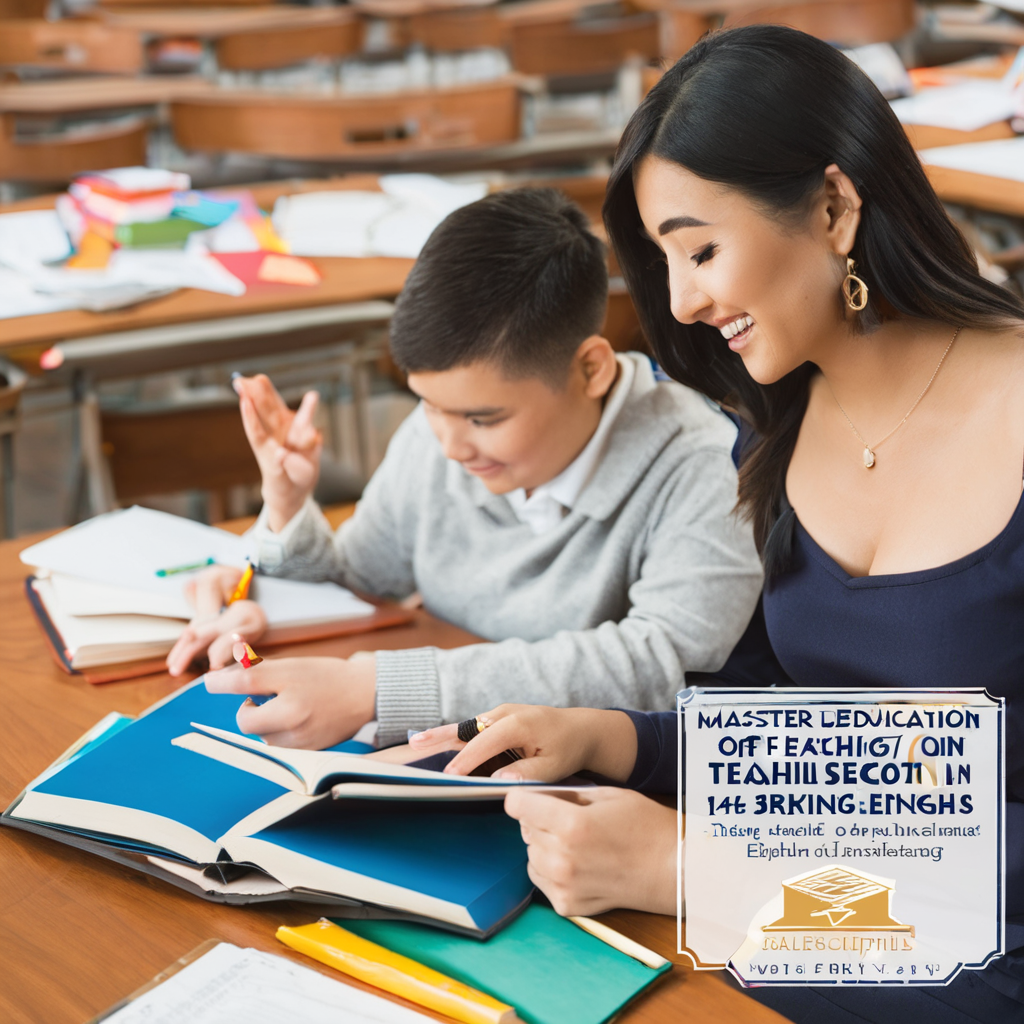As educators strive to meet the diverse needs of English language learners in the ever-evolving landscape of education, the Master of Education in Teaching English as a Second Language (TESL) emerges as a crucial pathway to enhancing instructional practices and fostering linguistic development. This specialized graduate degree equips educators with the knowledge, skills, and strategies necessary to effectively teach English to non-native speakers, empowering them to thrive academically and socially in English-speaking environments. Through a comprehensive curriculum that delves into language acquisition theories, pedagogical approaches, and cultural considerations, the M.Ed. in TESL program prepares educators to create inclusive and engaging learning experiences that cater to the unique needs of English language learners.
One of the key pillars of the Master of Education in Teaching English as a Second Language program is its focus on theoretical foundations of language acquisition. By exploring theories such as communicative competence, sociocultural theory, and second language acquisition processes, educators gain a deeper understanding of how language is learned and used in real-life contexts. This theoretical grounding not only informs instructional practices but also helps educators adapt their teaching methods to suit the diverse learning styles and linguistic backgrounds of their students. By integrating theory into practice, educators can create dynamic and effective language learning experiences that cater to the individual needs of English language learners.
In addition to theoretical foundations, the M.Ed. in TESL program also emphasizes practical teaching strategies and methodologies that are tailored to the needs of English language learners. Educators enrolled in this program have the opportunity to explore a wide range of pedagogical approaches, such as communicative language teaching, content-based instruction, and task-based learning, that are proven to enhance language acquisition and proficiency. By honing their skills in designing communicative activities, assessing language proficiency, and providing constructive feedback, educators are better equipped to create engaging and interactive learning environments that facilitate language development among English language learners.
Furthermore, the Master of Education in Teaching English as a Second Language program equips educators with the necessary tools to address the cultural and linguistic diversity present in today’s classrooms. Through courses that focus on intercultural communication, multicultural education, and diversity awareness, educators learn how to create inclusive and culturally responsive learning environments that honor the backgrounds and experiences of English language learners. By fostering a supportive and respectful classroom climate, educators can help students feel valued, respected, and empowered to express themselves in English while maintaining their cultural identities.
Another key component of the M.Ed. in TESL program is its emphasis on language assessment and evaluation. Educators learn how to design and administer various types of language assessments, such as proficiency tests, diagnostic assessments, and formative assessments, to gauge students’ language abilities and track their progress over time. By using assessment data to inform instructional decisions and tailor teaching approaches to individual student needs, educators can ensure that English language learners receive targeted support and guidance to achieve their language learning goals.
Moreover, the Master of Education in Teaching English as a Second Language program also delves into the role of technology in language teaching and learning. Educators explore how digital tools, multimedia resources, and online platforms can enhance language instruction, promote interactive learning experiences, and facilitate communication and collaboration among English language learners. By incorporating technology into their teaching practices, educators can create dynamic and engaging lessons that cater to the digital native generation and foster language development in innovative ways.
Additionally, the M.Ed. in TESL program equips educators with the skills to collaborate effectively with other professionals, such as language specialists, school administrators, and community stakeholders, to support the academic success and linguistic development of English language learners. By fostering partnerships and engaging in professional learning communities, educators can share best practices, exchange ideas, and collaborate on initiatives that promote equity, diversity, and inclusion in language education. Through collaborative efforts, educators can work towards creating a more supportive and enriching learning environment for English language learners.
Furthermore, the Master of Education in Teaching English as a Second Language program emphasizes the importance of ongoing professional development and reflective practice in enhancing educators’ teaching effectiveness and promoting continuous growth. Educators are encouraged to engage in self-reflection, seek feedback from colleagues and mentors, and pursue opportunities for further learning and skill development to stay abreast of current trends and best practices in language education. By cultivating a culture of lifelong learning and professional growth, educators can continuously improve their teaching practices and make a positive impact on the academic success and linguistic development of English language learners.
In conclusion, the Master of Education in Teaching English as a Second Language program plays a vital role in equipping educators with the knowledge, skills, and strategies needed to effectively teach English to non-native speakers and support their linguistic development. By combining theoretical foundations, practical teaching strategies, cultural awareness, language assessment, technology integration, collaborative practices, and professional development, this specialized graduate degree program empowers educators to create inclusive, engaging, and effective learning environments that cater to the diverse needs of English language learners. Through their dedication to enhancing their teaching practices and promoting language development, educators enrolled in the M.Ed. in TESL program contribute to the academic success and social integration of English language learners in today’s globalized world.
